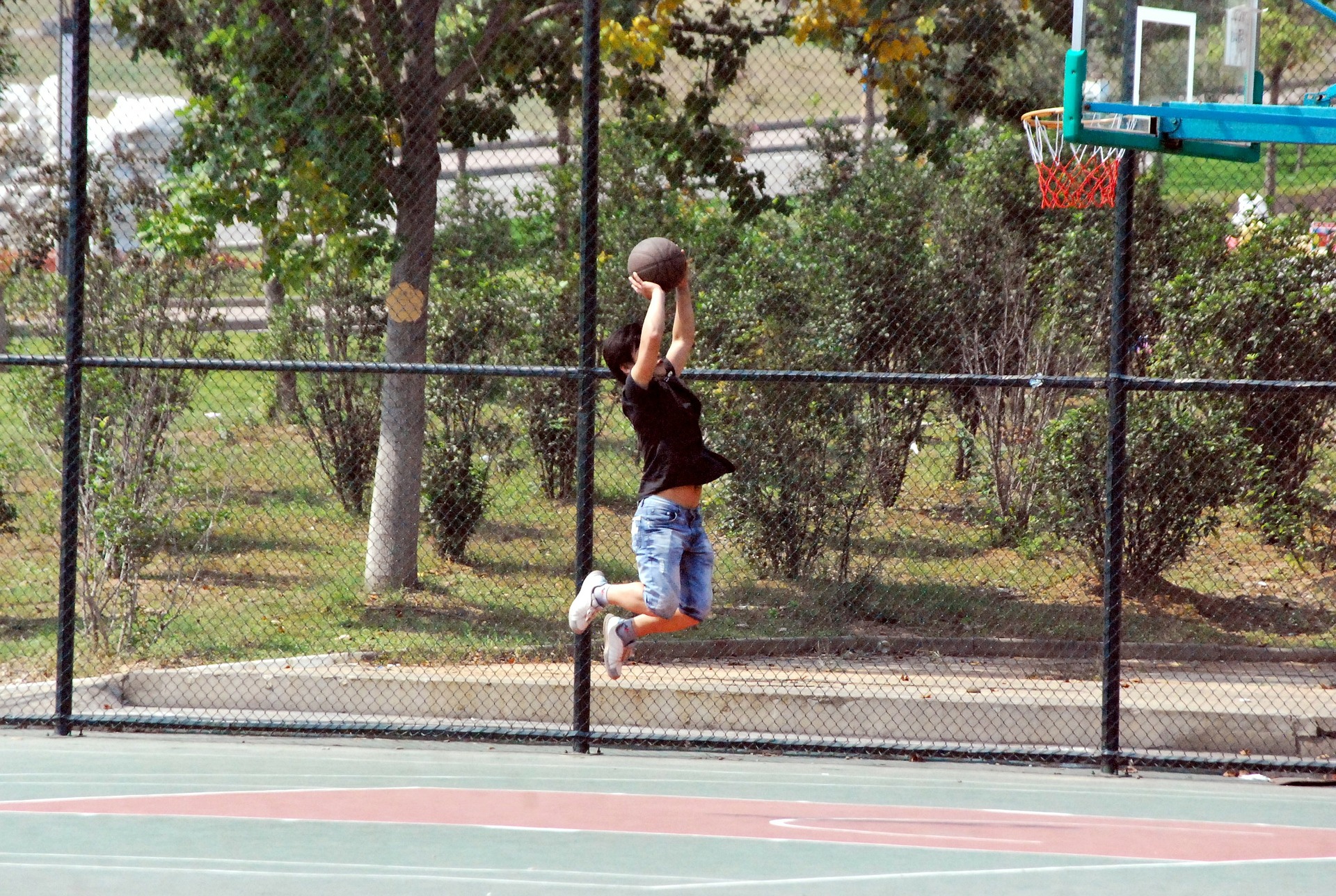
There Are Really Very Few Gifted People In The World
Tips and tricks are all over the internet. But practice is how you really make progress. Here are some of my favorite voice over practice exercises anyone can do that will help you get ahead in this competitive industry.
Nearly every talented person got that way because they went through a process of practicing to develop that skill. And if you enjoy doing something and become great at it, people say it’s a natural gift that you have.
If a kid likes playing basketball all day long and later gets on the high school team and then goes on to the NBA, was he born with it?
No.
It’s because he liked playing basketball all day long. All day long adds up to a lot of practice.
The same holds true for anything and everything. Voice work included.
Yes, you could have a great, unique voice. That you may have been gifted with.
But you have to know how to use it. And that takes practice.
If you’re new to voice work, you don’t yet have very much experience from sessions, so you need to create your own work. You need to create pseudo-sessions that you can use to improve your skill.
If you do already have experience, you can certainly see how keeping up on your game, when you are not actually being paid, will keep you in the position of being able to make more money.
Out Loud And Proud
To practice voice over skills, get into the habit of reading out loud daily for at least a half hour to an hour. That is about the average length of a voice over session.

You don’t have to narrow it down to just voice over scripts. Read ads and articles from magazines, internet news feeds, books, the ingredients of your tooth paste.
It doesn’t matter what it is, as long as you are getting the practice in reading out loud.
The more diverse, the better.
I also recommend doing this, and many of these other techniques, with someone you trust to give you honest feedback.
Another opinion will help keep your mind open for direction from the many producers and engineers you’ll be facing in the real world.
Forget About What Other People Think
Yes, I know what I just said about listening to other opinions, but this is different.
Not exactly an exercise but more of a state of mind to practice being in.
Back to the kid with the basketball. He is dodging and jumping and stealing the ball. He’s strutting away from the net with his hands in the air. He’s got other players all around him, we just can’t see any of them.
He is re-creating a real game as he practices in his driveway.
The real beauty of it is he doesn’t care what he looks like to us. And that makes it all the more enjoyable to watch.
Do you ever wonder why there are so many videos of voice talent at work on YouTube? For some reason, we are fascinated by it!
We get to see people becoming somebody else right before our eyes.
But it’s a healthy kind of “creepy-weird”. Not the multiple personality kind of stuff.
We enjoy witnessing a performance.
That Kid Is Acting Out!
But there’s no need for a dose of Ritalin here.
Many voice talent refer to themselves as voice actors. And they should. Just simply reading copy is not going to cut it in many cases.
Now, I am going to spend some time on this one because it is so much more important than anything else.
You have to become the story teller for the copy. Just like that 10-year-old kid is acting out being in the NBA.
Actors are the best voice talent because they think, feel, and become the character the script is portraying.
I have seen “voice talent” come into my studio and I have seen actors come into my studio. I don’t mean to ruffle anyone’s feathers, but the actors have it, hands down.
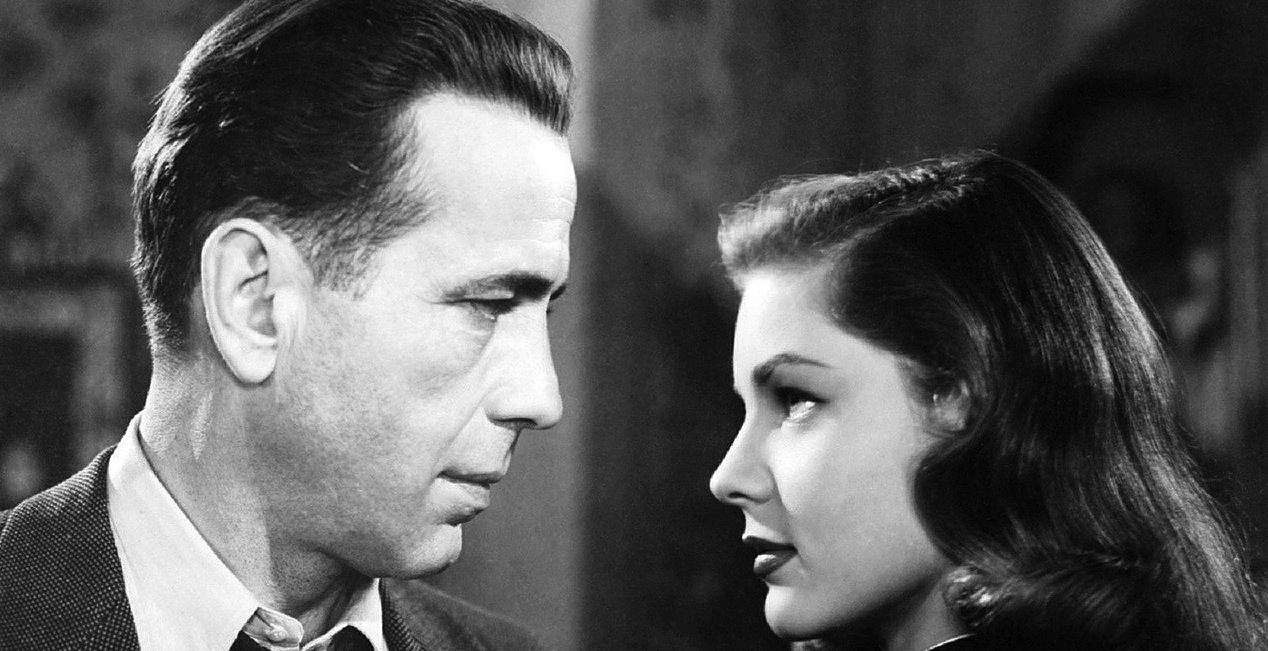
They take the time to think about what needs to be done before they open their mouth to record a take. They get into the character and block everything else out:
Nerves
Anxieties
Fear
Lunch
Bills
EVERYTHING!
If the producer or engineer says the next take number, or “ROLLING!”, most voice talent abruptly start reading before there is time to turn off the talkback mic.
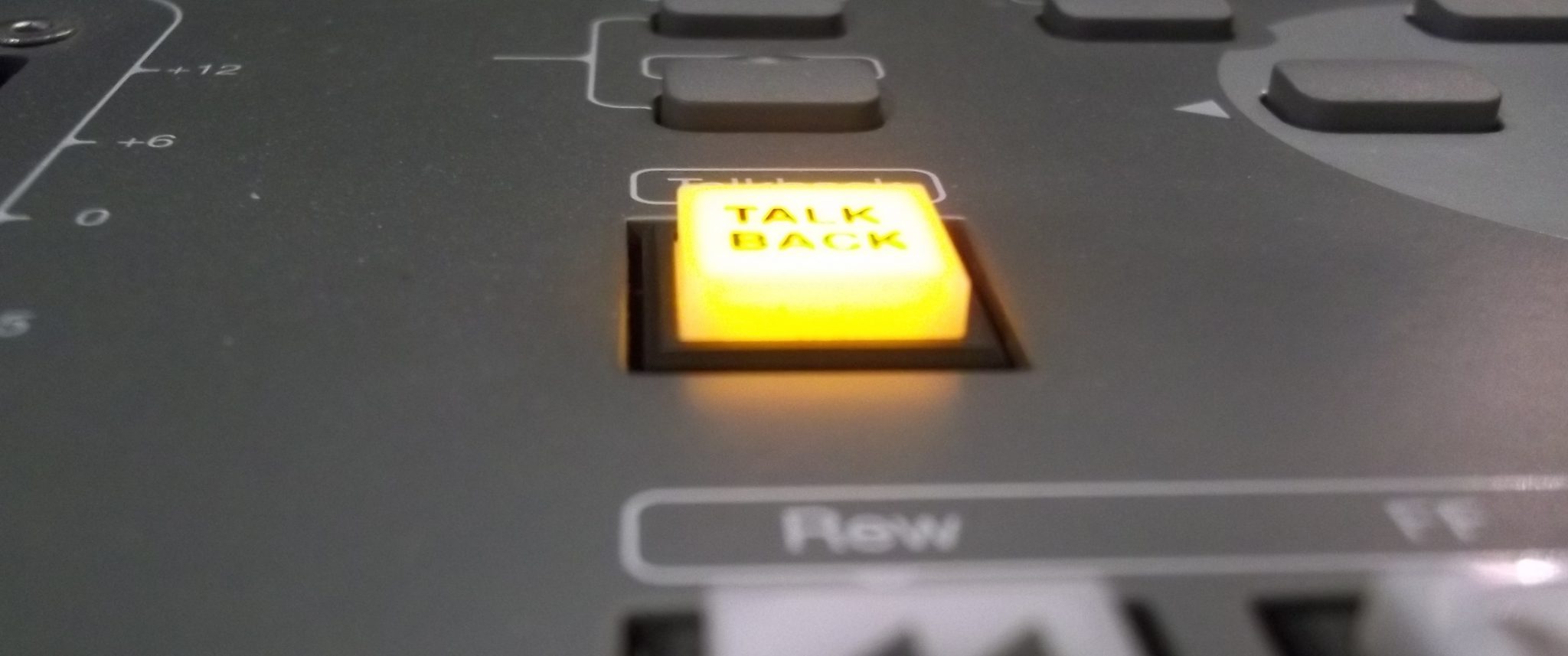
Actors will… well, act as if they didn’t even hear you. There could be a minute of silence before the character comes out.
Actors take their time.
Taking five minutes to focus on finding the right character before any recording is done will actually speed up a session.
Rushing into each and every take is only going to lead to more and more frustration and anxiety and make things take much longer.
But don’t get off track because of any of this.
You don’t need to go off in the direction of taking a whole host of acting classes before you can get back to your voice career.
All you need to do is take the time to channel your inner child’s ability to become who ever you want to be at any given moment. Without shame or embarrassment about how you might look.
(Think Basketball Kid)
If you were a character voice talent for Disney you would have no choice.
That’s exactly what you would have to do!
One more word on this.
If you are one of the elite working from your home studio, don’t work in your pajamas.
It is very difficult to get into character when you’re half naked.
Alright, let’s move on.
Playback Changes Everything
Record your practices and play them back. You will hear things in a much different way on playback when you are just listening and not trying to accomplish the perfect read.
There is a lot to focus on during a take. Listening to your read the same way any consumer would is going to allow you to hear what you could not hear while recording.
Some of the questions to ask yourself during playback:
How is my overall inflection?
Am I emphasizing the correct words?
Is my pace too relaxed or is it too frantic?
How is my enunciation?
Would I still be able to understand every syllable if there were music behind my voice?
What about in a room full of other distractions such as a busy home if this read were a commercial on the radio?
Do I believe this character or does it sound like bad acting?
Does it sound like I’m reading?
Not just while you’re practicing, but playback is just as important in the studio. If you are getting feedback and direction about your previous take, have the engineer play it back and it will become crystal clear what the producer is talking about.
You can spend much more than that 30 seconds asking,
“What do you mean?”
Let The Mic Do The Amplifying
Many voice over talent think they need to rev themselves up and project more and raise the volume to get more energy. Or when their read is running a few seconds long, they suddenly get louder and frantic.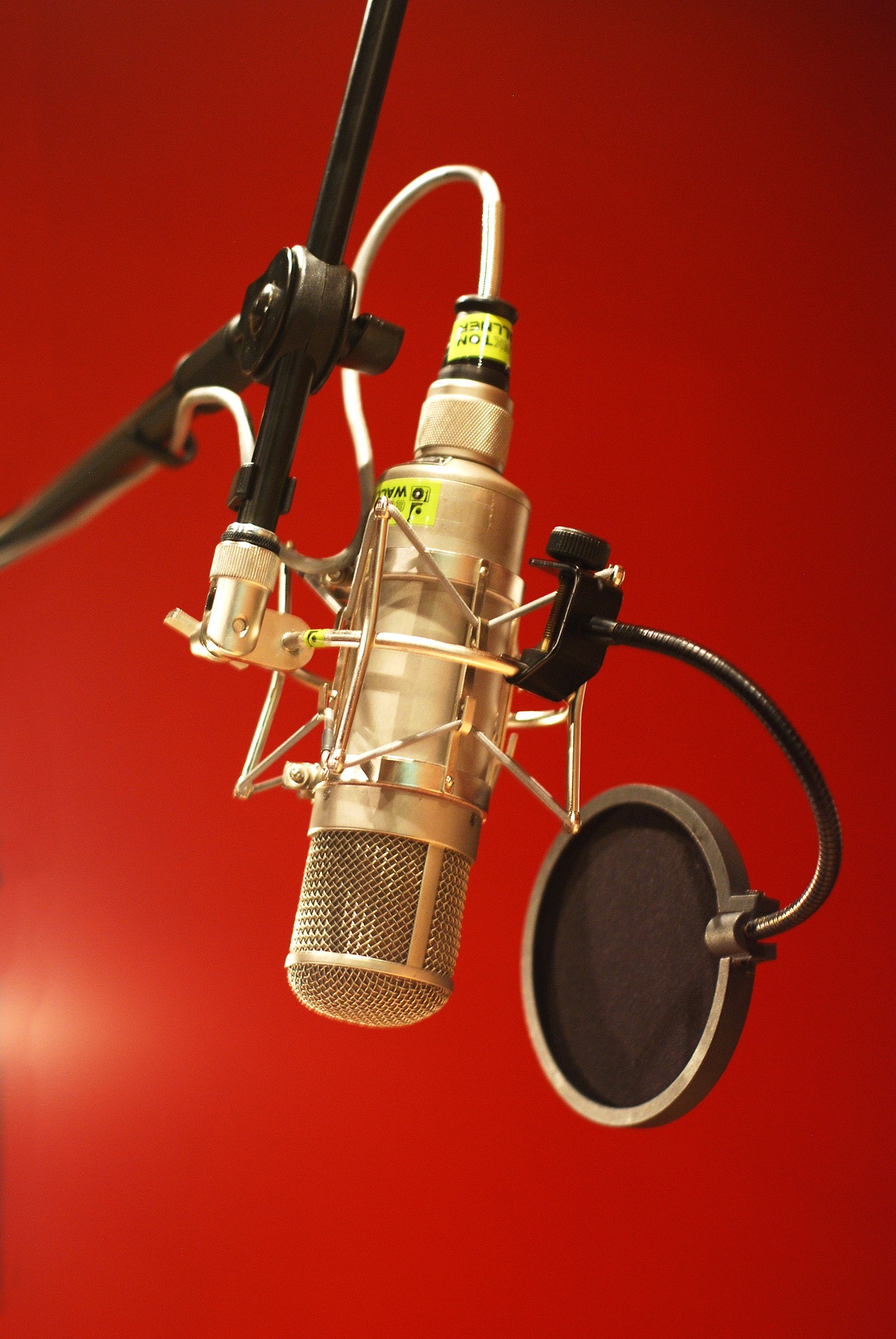
If you need to get more energy, try raising your pitch instead of trying to project more or be louder. The louder you get, the more breath you will have to take and the longer it will take you to get through the copy.
More energy through volume does not mean you can read faster.
This can work really well with some of the hard sell commercial spots where high energy is a staple.
Here’s a good example of what I mean.
If you were telling a friend about a disagreement you heard in the parking lot, you wouldn’t actually YELL the words you heard at your friend, would you?
Of course not. You would quickly be asked to calm down. Stop getting so excited.
Instead, you give the impression that you are getting excited by adjusting your pitch up a notch without having to raise your volume to the same degree that you heard during the disagreement.
Practice reading scripts with more excitement without physically using more energy to project louder. Remember, the more physical you are, the more air you will need, and the longer it takes to get to the next line.
A little bit more is fine, but you won’t last very long over doing it for every take. You want to be light headed from your client’s check, not from over exertion. And like I said, the read will be longer, not shorter.
Remember Your Grammar
Practice stretching your muscles by saying your vowels (A,E,I,O,U-and don’t forget sometimes Y) with exaggerated facial expressions. This is a good practice to do shortly before a session.
If you are driving to a studio for the session, just ignore the people in the cars next to you at red lights. If it helps, hold your phone up to your ear and they might not find it so odd.
This exercise will help you loosen up your facial muscles and aid in quickly getting through tough enunciations or combinations of words.
Give It More Bite
Here’s one I learned from a veteran local voice talent. Hold a pencil between your teeth like a bridle bit as far back as you can while reading a script.
Try to speak as clearly as you can. Do this for a few reads and then take the pencil out of your mouth and read the script again. You’ll be surprised at how much it improves your clarity of speech.

I have also heard that you can do this with a wine cork between your teeth, but that could lead down too many different avenues. You may have to call it a night once the wine is open.
Blowin’ In The Wind
Hold a small piece of paper, like a store receipt, in front of your mouth as you say,
“Peter Piper Picked a Peck of Pickled Peppers”
Keep trying until you are able to reduce the amount that the paper moves when you speak.
And don’t cheat by holding it further away each time!

This is a good practice for taming your plosives and avoiding the popping Ps.
Is Your Compressor A Compensator?
If you’re use to recording while using a compressor, practice recording without using one.
If you can maintain even levels without relying on a compressor you will develop better mic technique and your voice over work will have a more consistent and natural sound.
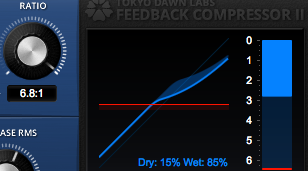
Your compressor will not have to work so hard. You might be surprised to find how much your compressor is compensating for too much head movement and fluctuations in your distance from the mic.
Today’s cars are built with sophisticated computers in them that are constantly adjusting things behind the scenes.
They even make changes when things are not exactly right so that they appear to be right as much as possible.
But, they could also be covering up issues that you don’t realize are there. And the problems get worse.
Turn of the tools that make you sound good and try to sound good without them.
There is a process for mixing in the music industry where you do your entire mix in mono. Making sure you can hear a good balance of every instrument.
Then when you flip back to stereo, your mix takes on incredible new life.
If you can master recording your voice without compression, you will be amazed at how good you will sound when you turn the compressor back on.
Here’s another great side affect. Engineers will be impressed with you, too.
Save Your Scripts!
You should always save your scripts from previous jobs. First of all, it is an easy way to keep your billing straight.
And second, you have an ever-growing library of practice material. Keep them handy so that they are easy to access.
I remember someone saying to me…
If you want to get better at playing your guitar, don’t pack it up every time you finish practicing.
Leave it out on a stand and ready to go at any given time. You’ll be tempted to pick it up much more often.
Using scripts that you’ve already recorded can get you warmed up quickly before moving on to some of these other techniques.
It’s the same principle. People who play instruments don’t just start playing something new when they pick it up to practice.
They warm up with what they are already familiar with that gets them quickly in the groove and gaining confidence.
A Breath Is Worth A Dozen Words
People just getting into voice work sometimes forget to breathe. The only way words come out of your mouth is because air is moving across your vocal cords.
If you stop breathing, sound will get strangled and eventually stop.
Some people will take a breath and then say a sentence and then let all the breath out at the end.
Not only does that sound choked, but you are now taking up the time of two breaths between sentences. One to let the air out, and one to take another breath in.
Picture holding an inflated balloon and reading copy. After you complete a line, you suddenly let all the air out of the balloon. Do you see the problem?
You don’t talk that way in normal conversation, do you?
Air should escape your lungs AS you are speaking. In relative proportion to your words.
To the point where your lungs are NEARLY empty, not completely empty. So that when you reach the end of a sentence, all you need to do is inhale.
Always reserve some air so that you are not completely out, without holding it all in so that you have to suddenly exhale to get another breath in.
Practice scanning the text with your peripheral vision as you read so that you can recognize punctuation, before you get there, as the place to take your breath. Then adjust your breath accordingly.
This is the problem with copy that is entirely upper case. There is no recognizable punctuation to allow for proper breathing. It also negatively affects your ability to inflect.
The More Fun You Have The Easier It Gets
If you are doing what you love, it should be fun to do it. Keep practicing and coming up with different ways to make the practice an enjoyable process.
If you practice these things regularly you will find that they become second nature to you. You don’t have to be gifted. But you can get to the point where it looks that way to others.
Being able to walk into a studio after having practiced hundreds of scripts and techniques in your spare time will make your voice work easy and fun.
You will be ready for any situation and feel confident and relaxed to deliver a desired performance that will have clients calling you back for more. And that’s what it’s all about.

I’m sure I will come up with more voice over practice exercises anyone can do. For now, this should keep you plenty busy.
Do you have any additional tricks that have helped you improve your skill?
Share them in the comments and help someone else with their craft.
Please share this post if you found it helpful.

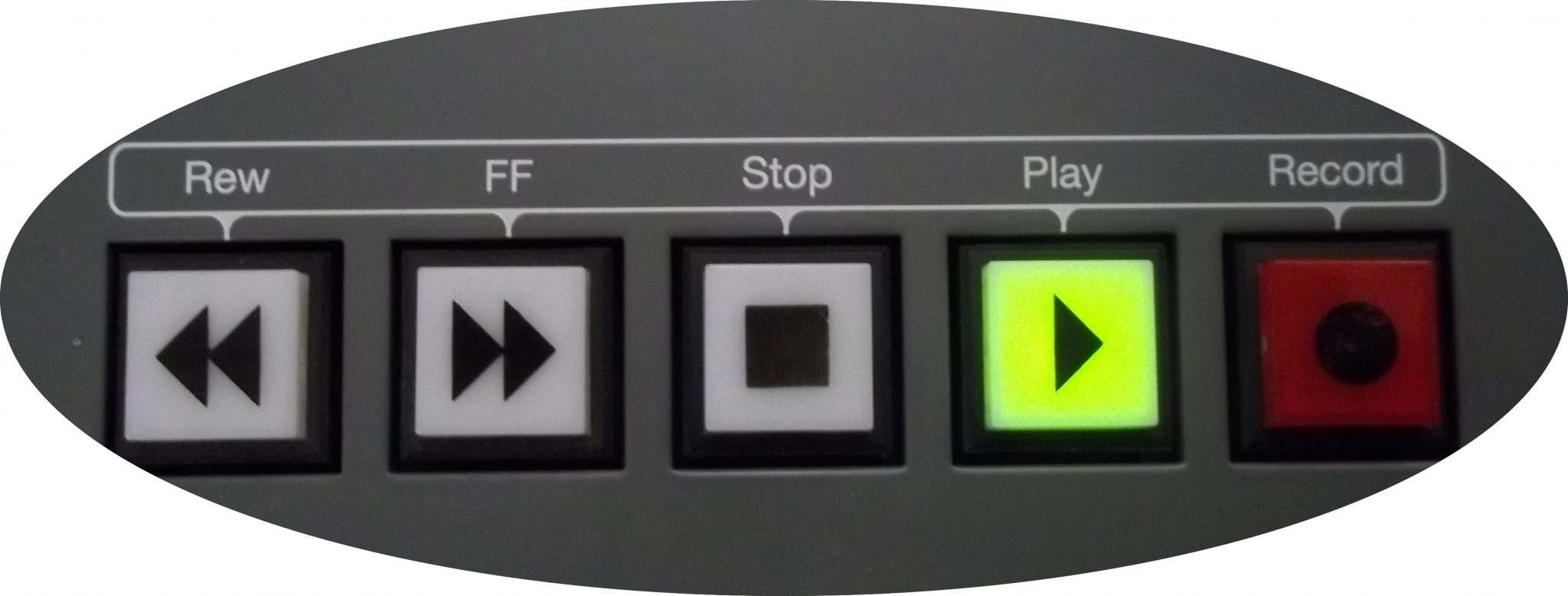
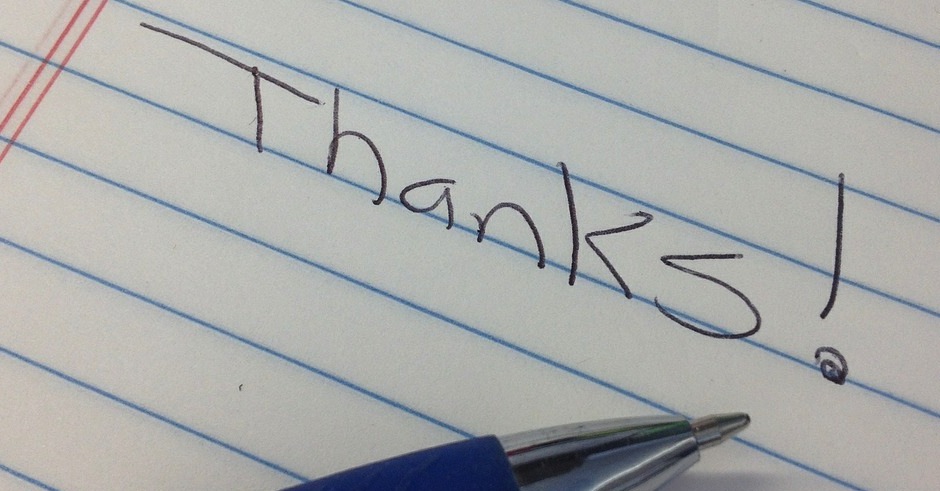
Thanks for the great advice.. I was wondering if there are any phrases that I practice
For example in Arabic we have tricky poetry that we can practice saying over and over to strengthen the tongue
Any type of “tricky poetry” or tongue twisters will do to increase dexterity. Probably the best practice you can do is to read out loud for an hour or so on a daily basis. From newspapers, magazines, on-line, or best of all, from scripts. That will provide the most diversity in terms of practicing word combinations.
Hi Jim,
I have recorded ads for my business and although I thought that they were OK at the time, listening to them again I know I could have done better!
I really enjoyed reading this article particularly recording actors vs everyone else. I have bookmarked this page for future use.
Thank you
Thank you Howard, I am glad it is helping you out.
This is a wonderful idea! I am impressed to read this information.. If you hear of anyone else who is interested in starting a new group, let me know! Thanks for sharing this information.
Hey Andrew, Thanks!
If there is something I have not covered or you have any questions, be sure to send me a message and I will get you an answer.
Hello there Jim ,that you have to tell to my friend , we are always debating on this subject.Both we are musicians , none of us sings.
He says a human is born with voice , I say practice can make a huge difference , he disagrees.He says that if I manage to sing , just on tune , not something great , he will be convinced.
I have read about this subject long time ago and I even bought some training courses , but I abandoned them due to work overload.
Is it worth to restart?…When I listen to the playback , I find that my voice sucks…
All my best
Of course, it is worth it to restart. If you are already a musician, you can add so much more to your performances if you can sing as well. Even if you are just adding one more backing vocal, you have increased the overall performance of the band. Absolutely anything practiced gets better.
Here is a simple example:
When you wake up in the morning, is your voice a bit scratchy and rough? Does clearing your throat and continuing to speak as the day goes on smooth it out and make it better? Or does it just stay that way, hoarse all day long? No, it clears up and gets better. You are basically “practicing” to talk clearly for the day.
Singing or voice work is no different.
As a musician, you clearly know good notes from bad notes. If you sing a bad note, you can hear it as a bad note and you know that you may have to try again to hit the right note. That is practicing, and it works.
Children are not born with the ability to speak right away. AND, they don’t just babble for the rest of their lives either. It is practiced to learn how words are articulated, how long to hold out each syllable, what pitch and cadence and speed to speak with, when to go up on words and when to go down for emphasis.
It is all practiced!
What happens when your voice is changing and it squeaks as a teenager? You say “Oh dear, that didn’t come out right.” And you try again to hit the right note!
Only this time you put a little more effort into it, you try to give it a little more control. You don’t just let whatever happens, happen.
Ask your friend if he practices to become a better musician. Does he warm up before he plays? That is practicing. What kind of musician would he be if he didn’t practice?
Absolutely anything practiced gets better.
Great words to grow by. I have in the 70’s worked in radio as a DJ and, had the awesome opportunity to do some radio plays. If you don’t have a walkin closet then what would be the second best place?
Were you in a room larger than a walk-in closet when doing radio plays? I bet you were. As long as you don’t have hard, reflective surfaces, any room, any size will do. Week 2 of my newsletter feed addresses what to do if you don’t have a walk-in closet. Keep practicing your voice-over exercises. The better you can sound before you are in front of a mic, the more control you will have over your recordings no matter where you are.
Thank you so much for the post. My son is wanting to do voice over and I want to find ways to help coach him at home. I like that there are multiple things he can do so he can make the most of his time at a voice over recording studio. The questions that you listed for playback are something that I will print off and make sure to ask myself when listening to his recordings.
Hi Jennifer,
Thanks for your comment. There are many, many things he can do ahead of time before going in for a session that will help prepare him. One of the best things I can recommend is learning how to record at home even if it is not studio quality at first. That will give him a lot of practice with hearing his own voice in headphones as well as learning mic technique. If he records anything with his voice at home, he will have no problems walking into any studio to do voice jobs.
Let me know how it goes for him.
This is something I’ve always been interested in. I even took a short online class in voice over on a web site that does training. I however didn’t have the funds at the time to take the course. It is actually one of my dreams to do this! Hopefully one day soon I will be able to explore this arena again. The equipment seemed like a lot to save for as well. The other problem would be finding a suitable place in my house to do voice overs in. Thanks for the information!
Thanks for your comment,
Equipment is cheaper now than it ever was, in fact all you really need to get started is a microphone, a recording program, (which you can get free) and a quiet place to record. Here is a link to download a short audio explanation on the best place to record your Voice At Home.
Walkin to wealth
Thanks!
Hi Jim,
Wow, this is such a great information post. I teach English online as well as train people to do public speaking. The exercises you give here for voice over are excellent. I am always promoting the 15 minutes a day reading aloud exercise for new English speakers (you say 30 mins for voice over) to my clients.
Breathing, reading with proper pitch and the proper use of microphones are key features of my teaching, so I loved reading about them here in your article.
Regards,
Duncan
Hi Duncan,
Thank you so much for your comment. Reading out loud and exercising your voice is very important for voice over work. I see too many talent come into the studio for a morning session and reading the script is the FIRST time they have spoken that day. In some cases they haven’t spoken to anyone since yesterday.
They get up and shower in silence and have breakfast in silence and then drive to the studio in silence, not talking to anyone. Then they try to read a script and it takes forever to warm up to it. Trying to get the frogs out of their throat through take after take after take.
Once you turn pro, you forget about the work involved in getting that way.
It is also the same work needed to stay that way or get better.
Good luck to you and all your students!
Wow did you ever touch on a sensitive nerve here! (with me) I have always wanted to sing, despite my desperate attempts at doing so, but my nerves ramp up & my emotions ALWAYS seem to get in the way. I’m happy to learn there are more “normal” people out there like me who feel this way, and I appreciate your tips on how to become better at voice work or singing. My sister is a singer/instructor coincidentally so I’m going to bookmark & forward to her so she can check your site out as well!
Thanks so much for putting this info up- well done!
-Will
HI Will,
Nerves get in the way a lot. You just have to try not to let them interfere with your performance. (In this case it should probably be spelled “interfear”)
What is the worst that could happen if you’re a little nervous? Most of the time, people can’t even tell what is going on inside, they are focused on completely different things than you are.
Very motivational article and I totally believe what you said is true about needing to practice, either voice over or for vocal performance. When I was very young, I could hardly sing any songs on the right keys, but I liked to sing and I practiced a lot, and now I can sing pretty well with or without karaoke.
I know people say “practice makes perfect” but that is not the goal of practicing. There is no perfect. It is really only to show that you are prepared for whatever it is you are about to do. Not being prepared is where people get into trouble. For instance, practicing singing with Karaoke has not only made you a better singer along with music, but has also prepared you to be able to sing without music. Probably something you didn’t set out to do while singing Karaoke.